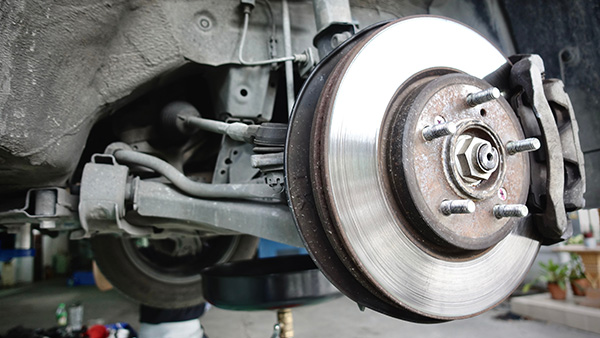
Ever found yourself in a sudden stop situation and felt that reassuring pulsing under your brake pedal? That's your car's ABS system kicking into action. Short for Anti-lock Braking System, ABS is a crucial safety feature that prevents your wheels from locking up during intense braking, allowing you to maintain control and steer your vehicle. But how does this lifesaving technology work?
The Basics of ABS
The Anti-lock Braking System (ABS) is designed to prevent your vehicle's wheels from locking up during braking, especially in slippery conditions. When wheels lock up, they skid on the surface, drastically reducing the car's ability to steer and stop effectively. ABS ensures that the wheels maintain traction with the road surface, giving you more control and reducing stopping distances.
How ABS Works
The ABS system is made up of four main components: speed sensors, a hydraulic pump, valves, and an electronic control unit (ECU). Each plays an integral role in ensuring your safety during hard braking.
Speed Sensors
These sensors are located at each wheel and monitor the speed of each wheel. They provide real-time data to the ECU, which is essential for detecting when a wheel is about to lock up.
Hydraulic Pump
When the ABS system activates, the hydraulic pump works to restore pressure to the brakes. This is crucial because ABS controls braking pressure to prevent wheel lock-up, and the pump ensures that enough pressure is maintained to keep the brakes effective.
Valves
These are located in the brake lines of each brake controlled by the ABS. The valves can open, close, or partially close to regulate the brake pressure. This modulation prevents the wheels from locking and allows for controlled braking.
Electronic Control Unit (ECU)
The brain of the ABS, the ECU, receives data from the speed sensors and, when it detects potential wheel lock-up, signals the valves to adjust the brake pressure accordingly.
The ABS Process in Action
Imagine you're driving down the road, and suddenly, an obstacle appears in your path. You slam on the brakes. In a vehicle without ABS, this could cause the wheels to lock up, leading to a loss of steering control. However, with ABS, the system springs into action.
- Detection: The speed sensors detect a rapid deceleration of one or more wheels, indicating potential lock-up.
- Response: The ECU processes this data and activates the hydraulic pump and valves to modulate brake pressure.
- Pulsing: You feel a pulsing sensation in the brake pedal. This is the ABS rapidly applying and releasing the brakes up to 20 times per second to maintain optimal braking pressure.
- Control: The modulation allows the wheels to continue rotating, preventing lock-up and enabling you to steer around obstacles.
The Benefits of ABS
The most significant advantage of ABS is its ability to maintain steering control during emergency stops. This is particularly beneficial in slippery conditions, such as rain or ice, where the risk of skidding is higher. ABS can reduce stopping distances on some surfaces, although the primary goal is to enhance vehicle control.
At Kaufman's Auto Repair, we often remind our customers that ABS is not just for extreme conditions. Everyday driving can present unexpected hazards, and ABS ensures that your vehicle is better equipped to handle sudden stops safely.
Maintaining Your ABS System
Like any other component in your car, the ABS system requires regular maintenance to function correctly. Here are a few tips to keep it in top shape:
Don't wait for an emergency to test your brakes. Visit Kaufman's Auto Repair for a thorough ABS inspection.